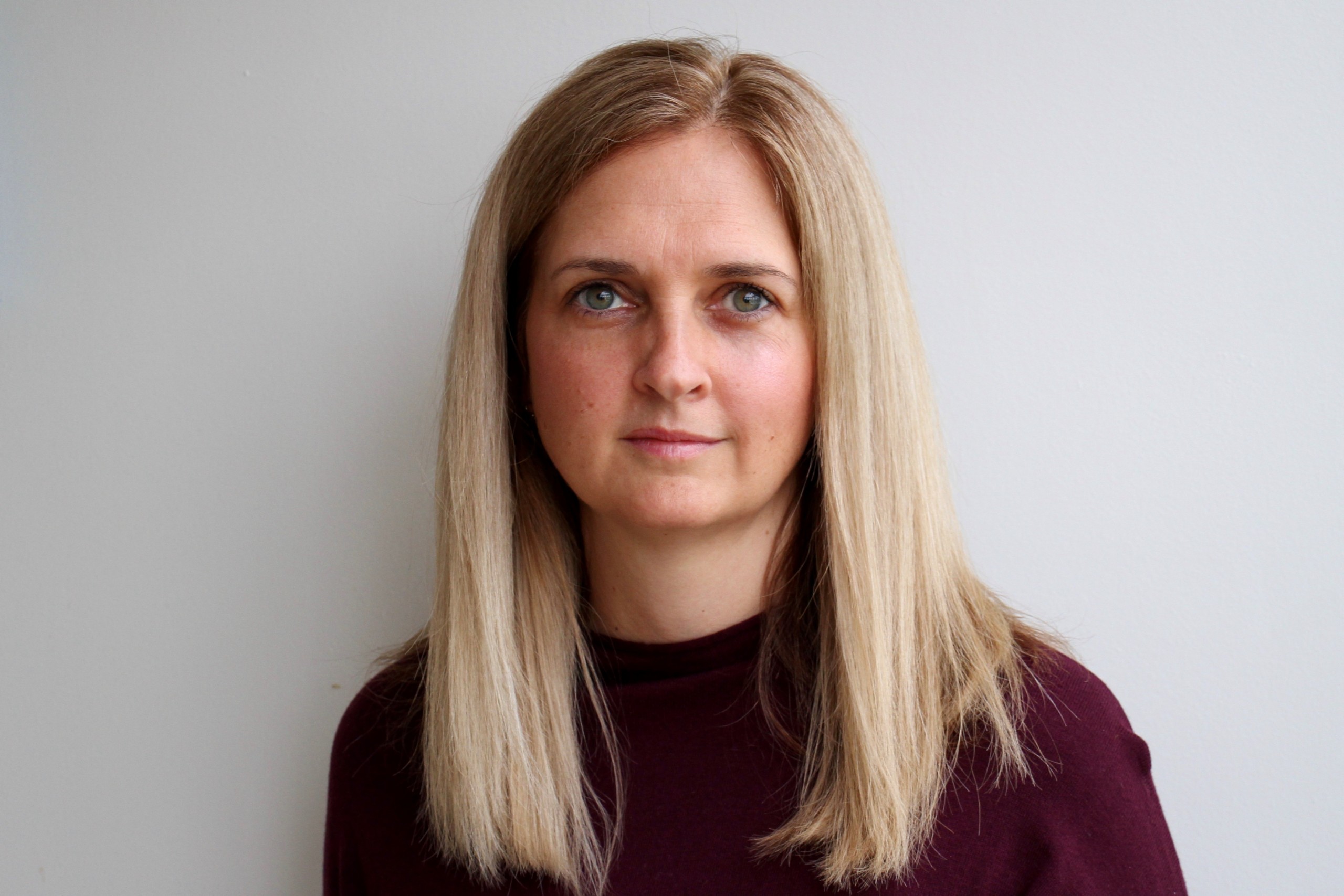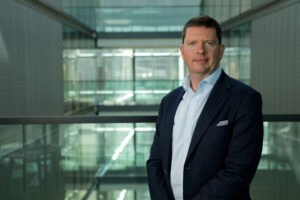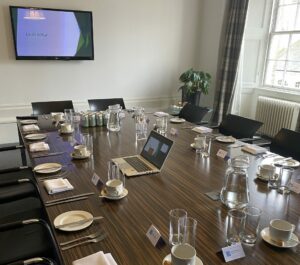Following Arlene’s presentation covering her journey to CFO, career choices and reasonings, we moved on to a Q&A session providing an opportunity for both the Rutherford Cross team, and wider audience to further explore some of Arlene’s experience and motivations. You can view Arlene’s full presentation here.
What followed was an interesting session which included questions around work/life balance, changing sectors and the challenges, the benefits of taking on a voluntary board position, and what it takes to make it to CFO. We share a snapshot of some of the questions below:
With there being a greater focus now on ensuring greater gender balance in leadership roles do you feel enough is being done by businesses to ensure females are able to access these roles and, if not, where do you think they can improve?
In short no. But not just directly for females, but for all people in general who have families, carer roles or anything else that might mean they can’t do a normal 9-5 working role or progress their career. One of my previous employer’s, Westpac, was very flexible and progressive with different working patterns for all employees. I think that is something we should be doing more of in the UK. I think you do tend to see a lot of women falling out of progressing to more senior roles because it is hard if you do not have the right family network to provide support or a partner that might work away, meaning you can’t easily do the big jobs. Everyone’s unique circumstances are different, and I think the more progressive, flexible policies organisations put in place, the more people you will see progress in senior roles, definitely women, but equally anyone can.
You spent time at Social Bite on the Board. What advice would you give to someone who is looking to take on their first voluntary board position and how helpful was it for your personal development and career path?
Social bite was a great experience, it is a great charity and also it was very different to the experience I gained in my industry roles. I got charity board experience which is different to normal board governance experience and was able to work with people I wouldn’t normally have been able to work with and share very different skills, experience and knowledge. In that role in a short period of 10 months the homeless village idea became a reality through the work of volunteers. I’d encourage everyone to try and get involved with something out with the day-to-day. You will learn a lot from it and it broadens your experience
Many of us have been adjusting to working virtually over the last 12 months but that is largely how you operated in your role at Aviva for three years. With more experience than most in this area, do you have any recommendations for successful virtual working across your teams, peer group and exec/senior stakeholders?
I find virtual working brilliant for keeping large groups together, particularly multi-location teams and fantastic for when you have overseas teams and don’t want large travel budgets. I really hope it sets the new precedence for going forwards and presenteeism is a thing of the past as you don’t need to have people in front of you face to face to prove they can do the work. What it doesn’t replace though, is getting to know someone as it’s nice to meet someone face to face. I think going forwards it needs to be blended but the days of presenteeism are a thing of the past.
With there being an increasing focus on better work/life balance to improve health & wellbeing in and outside of work, how important do you think this is and how do you promote that with your team and how do you manage it for yourself?
Health and wellbeing is very important to me because I think if you don’t focus on it you won’t get the best out of the individuals. The days of work/home life being two different things is now gone and who you are outside and inside work has to be the same person. Also having a 12-14 hour working day is not healthy for anyone and doesn’t get the best out of people.
If you encourage people to get active and get involved in Health & Wellbeing activities it increases engagement, people are more willing to share their experiences, and I’ve seen sickness levels drop off, people become more productive, they feel healthier, and you get the best out of people. I think there used to be some stigma around health and wellbeing which is changing and as leaders do more to encourage it and practice what we preach, then we are opening the workforce to be more attentive to their health and wellbeing. Personally, I am a yoga fan and in a previous role came close to burnout from not focusing on my health and wellbeing. I now do yoga every morning and walk most days and I feel I am a much calmer person now.
They say that excellence in your job is a journey, not a destination. What development opportunities have you taken over your career and do you have any planned for the future?
I absolutely agree that excellence is a journey. No one become an expert overnight. I think continuous learning, experience, and opening your mind to opportunities and experiencing different cultures shapes your journey and enables you to become good at what you are doing. Getting feedback, seeking advice from mentors/coaches, taking on new opportunities that will help identify where your strengths and weaknesses are, is important. External networks are critical, learning from other people in different industries. In terms of what’s next, I really enjoy what I’m doing, and I don’t tend to plan too far ahead. I want to do more with charity work and mentoring and also family time is very important to me.
As someone who has been supported by line managers in making the work environment work for you in returning from parental leave, do you have any advice on how leaders/managers can support teams and workforce in making step change to supportive working environments and in particular with the return to the office over the coming months.
Have individual conversations with people and let them know its ok to be a bit wary of what is ahead, be it a return to work from parental leave or just returning after being WFH for the last year. Be gentle with people and have low expectations. Open the dialogue and let people know as a leader how you feel, show your own vulnerabilities. Let people know its OK to feel how they are feeling and try and come up solutions that work for you both.
Did you always have ambitions to be a CFO? Were all your moves therefore trying to build experience to ultimately hit that goal and do you think you need an end goal, or can you just be flexible and see where your career takes you?
I always had an ambition of being a CFO but funnily enough I didn’t know when. I had ambitions to get ahead and do well and I’ve always been very driven, but my moves weren’t deliberate. I don’t think there is a straight path to being a CFO. The role of CFO means being a bit of a jack of all trades these days and you don’t have to be the expert on each of these, you need to know enough and importantly build the right team and know who in your team will fill some of your gaps. Things that have set me up for the role, has been getting involved in strategic change, leading a project, doing the finance transformation initiatives, you learn so much about the business getting involved in these areas. Also volunteering to do things like be health and wellbeing champion, it’s not always about the numbers, it might be a sideways step, moving into another function role such as Risk or HR or into the business to broaden your experience.
How do you go about inspiring your team and how do you influence your peers?
I bring the team into a lot of conversations and collaboration is key to getting things done. A live example currently is we are re-organising our finance team to centralise finance, and creating shared services. I brought the finance team into that design, they have been involved along the journey to help me think through what the right thing is to do for this business and what do we need for finance going forward. They have been very much part of that process from day 1. My role is to lead, inspire and encourage them to be the best they can be, I don’t have all the answers, I’m not the expert on everything. It’s not just about you but the entire team and you’ve got to give them a voice. Know your team and individuals and recognize it’s not a one size fits all.
To find out more about this and other Rutherford Cross events contact [email protected] or [email protected]







